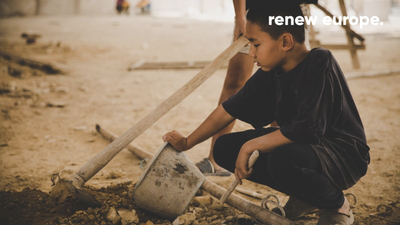
EU ban on products made by forced labour a priority file for Renew Europe for the end of the mandate
Today, the committees on International trade (INTA) and on the Internal market and Consumer protection (IMCO) have jointly adopted a strong mandate from the European Parliament on the regulation to ban the products made using forced labour on the EU Market. Renew Europe, which leads this file, is ready to negotiate with the Council and the Commission as soon as possible in order to reach a deal and to have a legislation in force before the end of the mandate. This is crucial.
Indeed, 28 millions of people are in forced labour according to ILO estimates. As political leaders, as consumers, as citizens, we cannot let such situations flourish. Nor can we allow such products to circulate on our market. This regulation can make the difference.
Samira Rafaela (The Netherlands, D66), Renew Europe MEP and rapporteur on this file in the committee on International trade (INTA), has declared:
“Forced labour is a severe violation of human rights. The ban that we voted today is pivotal for removing an economic incentive to engage in forced labour. We will prevent modern slavery products from entering the European market and shield our businesses and SMEs from unethical competition. The ban incorporates a robust database with concluded investigations. Furthermore, it protects whistle-blowers, offers remediation to victims, and is gender-responsive, all essential components for a sustained impact. Today we state exactly what we stand for, protecting and upholding human rights.”
Svenja Hahn (Germany, FDP), Renew Europe MEP and shadow rapporteur on this file in the committee on the Internal market and Consumer protection (IMCO) has added:
“This instrument must help fight forced labour by eradicating the single market as a market for forced labour products. This is both a matter of our commitment to human rights and fair competition. The execution of the legislation must lie with the governments and the Commission. Businesses need to do their part to make sure that their products are free from forced labour, but at the end of the day it is up to governments, not the economic operators or the consumers, to uphold and guarantee human rights.”
